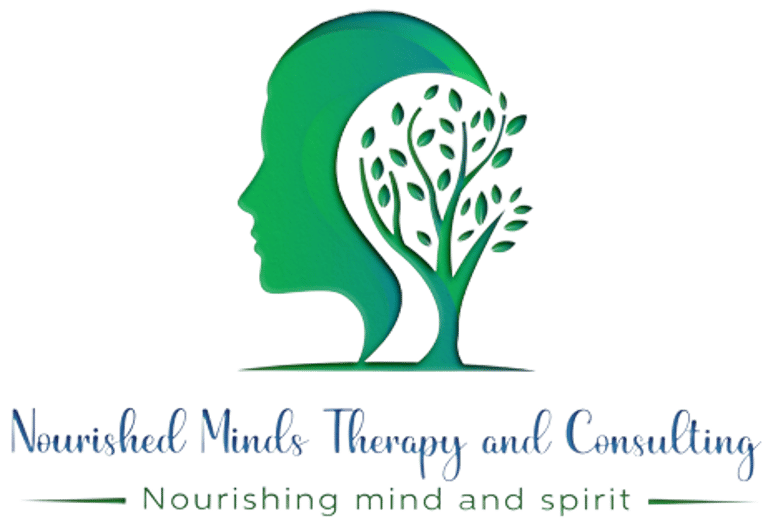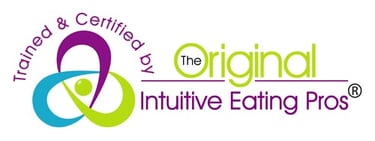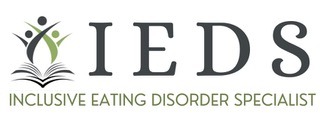


With constant access to pop culture, social media, advertising, and to one another, the pursuit of an idealized body size, shape, or “wellness goals” is at an all-time high for many people. The culture largely responsible for fostering this obsession is known as diet culture, and it encompasses a complex web of beliefs, attitudes, and practices that promote thinness as the epitome of beauty, health, and self-worth. Beneath the flashy facade of diet culture (now often masquerading as “wellness culture”) lies a dark reality: a breeding ground for distorted perceptions of body image, leading to a host of negative consequences and dangerous health outcomes for individuals and for our society. Due to the complexity of this topic, I will be sharing my thoughts in a 4 part blog series. As you read this post, I invite you to consider what impact this culture has had on your view of yourself, your mental health, and how it has impacted those close to you.
Understanding Diet Culture:
Diet culture runs deep in our modern society, showing up in various aspects of our lives, from media and advertising to social interactions and healthcare systems. At its core, diet culture promotes the notion that thinness or “fitness” equals success, beauty, happiness, and moral virtue, while equating larger bodies (especially ones that don’t fit a “curves in the right places” aesthetic) with laziness, failure, poor health, and lack of self-discipline. This ideology is perpetuated through an endless barrage of messages from mainstream media, celebrity culture, and the “wellness” industry, glorifying restrictive eating (such as eliminating entire food groups), extreme exercise regimes, and the pursuit of what is often unattainable beauty standards. That push to achieve those standards is frequently hidden behind more covert forms of encouragement such as, “I just want you to lose weight for your health!” But how do we know by looking at someone that their health has improved simply because they are in a smaller body? Spoiler alert: we DON’T. In fact, more often than not, for a variety of reasons, people who have intentionally lost a significant amount of weight may be at risk for poorer health outcomes than they were prior to the weight loss. If you are shocked to read this, stay with me for part 2 and 3 of this series, where this specific misconception is discussed further.
The Distorted Lens of Body Image:
One of the most damaging effects of diet culture is its profound impact on individuals' views of their bodies. Constant exposure to unrealistic beauty ideals and the pressure to conform to them can warp one's sense of self-worth and identity, leading to distorted body image perceptions. Instead of viewing their bodies with acceptance and appreciation for their inherent diversity, many people internalize society's narrow standards of beauty, leading to feelings of shame, inadequacy, and self-loathing. One of the most insidious aspects of this way of thinking is how normalized and accepted it is. Most people would not give a second thought if they overheard the comment, “Wow, you look so great! Did you lose weight?” It is assumed that this statement is inherently positive and a compliment. But think for a moment what message that sends, what is being implied: something was not as good when you were heavier—you are (in some way) better now that you are this lower weight. You should keep this up. How dangerous and damaging might that be for someone who already struggles with self-acceptance, poor body image, and/or possibly lost the weight in an unhealthy, unsustainable way?
The Role of Social Media:
In the digital age, social media platforms have become powerful amplifiers of diet culture's influence, often adding to the prevalence of distorted body image perceptions. From perfectly crafted Instagram feeds to TikTok videos promoting rapid weight loss techniques, social media bombards users with unrealistic portrayals of beauty and fitness, fueling comparison and self-doubt. The rise of influencers and celebrities promoting detox teas, appetite-suppressants, and other harmful products perpetuates the myth that thinness is achievable through quick fixes, further perpetuating unhealthy body image ideals.
The Intersectionality of Body Image:
It is essential to recognize that the impact of diet culture on body image is not uniform across all demographic groups. Intersectional factors, such as race, ethnicity, gender identity, sexual orientation, and socioeconomic status, intersect with body image perceptions in complex ways, shaping our experiences of self-esteem, beauty ideals, and access to resources. For example, Black women, LGBTQIA, and other marginalized communities often face unique pressures to conform to westernized beauty standards, or heteronormative standards. This exacerbates feelings of alienation, low self-worth, and cultural erasure. Prior to the Kim Kardashian era, “Heroin Chic” was all the rage, so having a shape that did not fit that extremely thin aesthetic (regardless of the genetic differences that make us all beautiful) meant you were simply not as valuable. Or worse, it meant you needed to partake in what was likely unhealthy or dangerous methods to fit that into that mold. Most of us do not need to look far to see how the underlying message hasn’t changed much over the years—no matter who you are, where you come from, and what your genetic background is, there is a “look” or “looks” you need to fit into to gain acceptance.
The Mental Health Toll:
The detrimental effects of diet culture on body image extend far beyond mere dissatisfaction with one's appearance; they can have profound implications for mental health and well-being. Research has consistently linked exposure to idealized beauty standards and internalization of weight stigma to increased risk depression, anxiety, and low self-esteem. Perhaps at its worst, the pursuit of the “ideal body” can lead to disordered eating behaviors, such as bingeing, purging, and compulsive exercise, further exacerbating psychological distress and impairing quality of life. More on this in future blog posts.
Breaking Free from Diet Culture's Grip:
Despite its pervasive influence, it is possible to challenge and resist diet culture's harmful narratives and create a more positive relationship with one's body. This process begins with awareness and critical reflection on the ways in which diet culture infiltrates our thoughts, beliefs, and behaviors. Looking back on your past experiences with dieting or weight loss efforts, you might ask yourself a few questions: How have these experiences affected my relationship with food, my body, and my mental health? Have I ever felt pressured to pursue unrealistic weight related goals, even at the expense of my mood, happiness, or wellbeing? Has any "diet" I've tried led to long term feelings of peace, happiness, or balance? What has it cost me (financially, physically, mentally) and is it worth it? By having these honest conversations with yourself, questioning societal norms, challenging harmful stereotypes, and embracing body diversity, you can begin to reclaim agency over your body and identity. Adopting a Health At Every Size® approach and Intuitive Eating, both of which are used by Nourished Minds Therapy, are statistically proven methods to assist you on your reclamation journey.
In the fight against diet culture, fostering a culture of body positivity and self-compassion is crucial. This involves celebrating bodies of all shapes, sizes, and abilities, rejecting weight-based judgments, and practicing kindness and acceptance towards oneself and others. By prioritizing self-care, setting boundaries, and connecting with a supportive community, individuals can build resilience against the onslaught of diet culture's toxic messages and regain their sense of worth and dignity.
Receiving outside support can be an especially necessary step if you have found that this way of thinking is affecting your (or a loved one’s) ability to function in various important areas of life and/or has led to the development of disordered eating. As recommended in most of my blogs, having honest discussions about how this is negatively impacting you with a loved one can help build a network where you can experience some reprieve from external negative messages, and find clarity for what's truly healthy and restorative for you. Nourished Minds Therapy specializes in the treatment of disordered eating and distress around body image. Consultation on how we can tailor a plan to work through these stressors and forge a path to move forward is free of charge. Parts 2, 3, and 4 of this blog series includes additional information and recommendations about this important topic.







